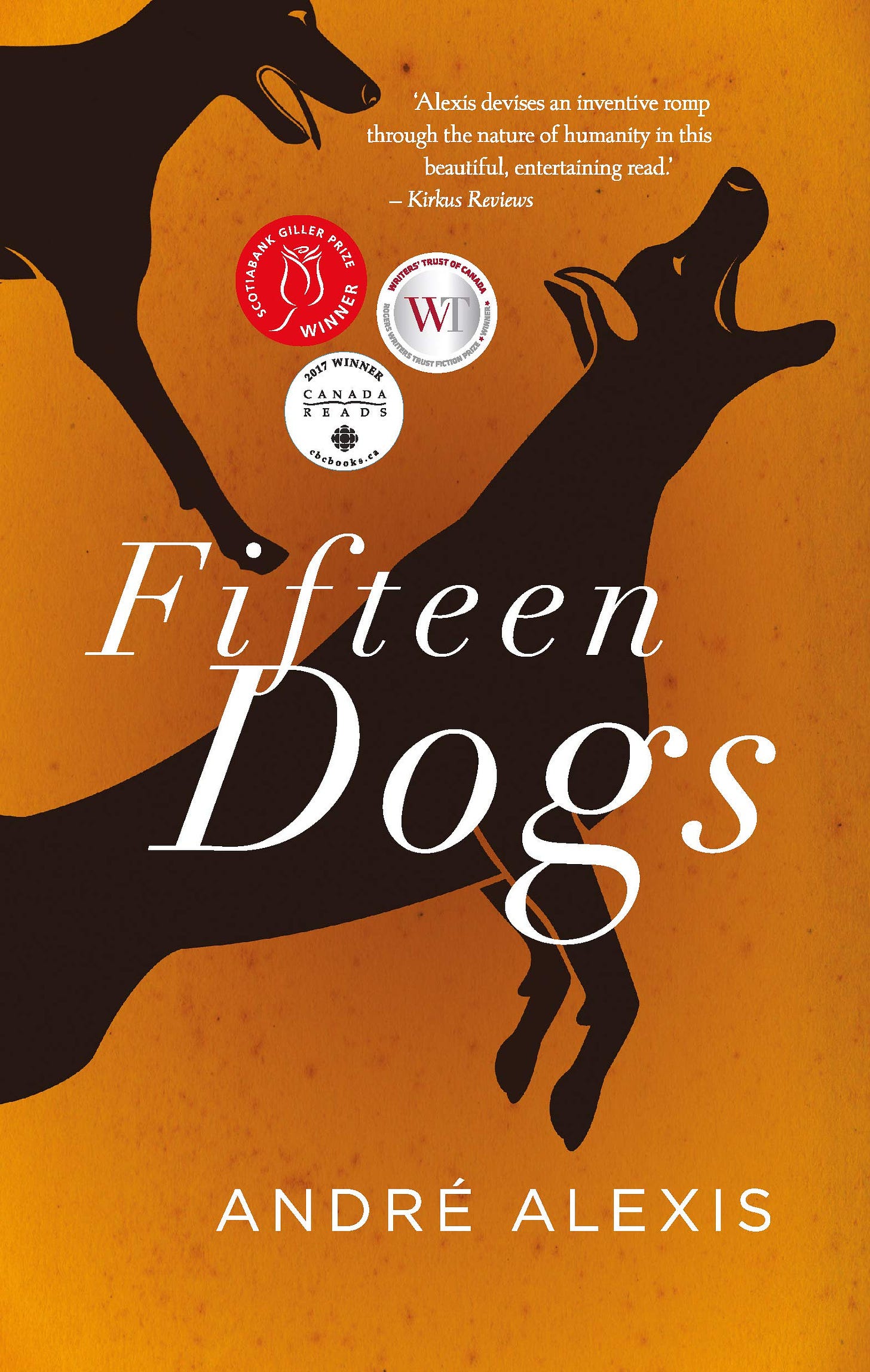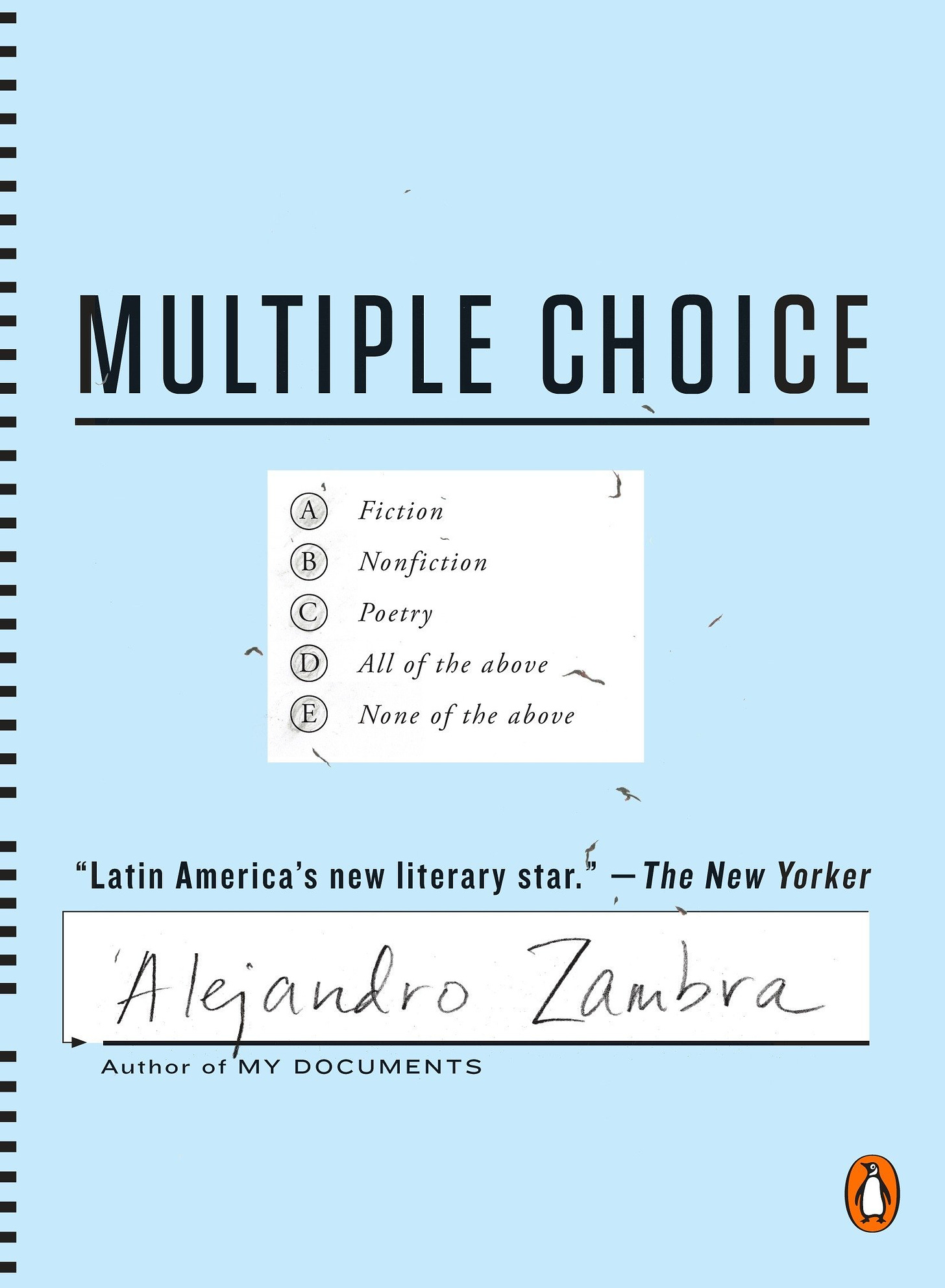Dumb yet Brilliant Books
Your best idea is probably your weirdest, silliest, or most impossible one.
There’s a thin line between dumb and brilliant. This is true everywhere in life—how many successful companies started with ideas that were dismissed as silly at the time?—but perhaps especially in art, where so often the avant-garde is the absurd treated very, very seriously.
So many of my favorite books have a completely silly/weird/insane premise that the author treated with the utmost intelligence, sincerity, and skill. For example, Vladimir Nabokov’s Pale Fire in which the plot unfolds in annotations to a (kinda bad) epic poem written by a possibly insane literary scholar. Or Nicholson Baker’s The Mezzanine, which unfolds entirely in the mind of a guy going up an escalator with no other plot. These are the kind of novels that should not work, yet precisely for that reason they’re the most inspiring books for a young writer to read. At least they were for me. What better way is there to push literature forward than to prove an unworkable idea can work?
I first heard this advice stated this way by Tony Tulathimutte:

I think this is exactly right, and I’m not being snarky. I might not limit it to “dumb.” It can also be your craziest, weirdest, or most impossible idea. Pick that and write it seriously. This is advice I’ve started to take myself. My current work-in-progress is an idea that sounds so silly and pointless, and yet I’m pretty sure it is the best work I’ve ever written.
“If I correctly understand the sense of this succinct observation, our poet suggests here that human life is but a series of footnotes to a vast obscure unfinished masterpiece.” - Nabokov in Pale Fire
It strikes me that this advice—pick something absurd, then treat it seriously—is pretty close to advice I’ve heard from comedians. The best comedy is often totally silly ideas that are, if not taken seriously, then at least followed through on. The premise is mined for all its worth. Think of the classic “cowbell” SNL skit. Or to pick my own favorite SNL sketch ever: “The Guy Who Plays Mr. Belvedere Fan Club.” In this sketch Tom Hanks leads a meeting for, well, fans of the guy who plays Mr. Belvedere (apparently these mega fans don’t even know his name?) who take their obsession with a random character to dark places. Anyway, just watch it.
Perhaps this comedy connection is why so many of the absurd-but-brilliant novels like Pale Fire and The Mezzanine are hilarious. But this principle holds true for non-comedic books too. I’ve written before in this newsletter about the Oulipo group who used extreme constraints like writing a novel without the letter “e.” Probably the best known book from that group is Italo Calvino’s Invisible Cities, which is a novel composed of a bunch of poetic descriptions of fictional cities. That should never work! But it does.
The brilliant dumb novel seems like an especially European mode, perhaps because a lot of European authors take themselves so seriously they think every idea they have is brilliant. So many books from the Surrealists, Oulipeans, and other European avant-garde groups fit here. But you can find these books all over the world.
So many Borges stories have an absurd premise, like “Pierre Menard, Author of the Quixote,” which is ostensibly a work of literary criticism about a guy who decided to rewrite Don Quixote
Most of the Japanese novelist Kobo Abe’s books could fit, especially The Box Man, which involves a man who drops out of society to live in a cardboard box. Then he is hunted down by people who want to live in his box and the text itself is written by different characters on the inside of the box.
A novel I recently read and adored with a “how did that work?!” premise is Fifteen Dogs by the Trinidadian-Canadian writer André Alexis. The premise of this book is that the Greek gods (why are they in Canada?) make a bet about whether dogs would be happy with human consciousness. The gods give consciousness to the titular fifteen dogs, and the novel follows them through their trials. It’s a crazy premise that leads to a deeply moving book. (If you love dogs, read it!)
I adore the American writer Mary Robison’s Why Did I Ever, which is a novel told in 500+ fragments that are a mix of scene, jokes, aphorisms, and proto-Tweets. (The book was published in 2001 and Robison wrote it on index cards.)
Another gorgeous and moving book that I think of all the time is Alejandro Zambra’s Multiple Choice, a novel that unfolds in the format of the Chilean Academic Aptitude Test (basically the Chilean SAT). It’s an impossible novel to even describe, but anyone who enjoys language and form should read it.
Or how about Anne Carson’s brilliant “novel in verse” Autobiography of Red, which mixes up classics scholarship, poetry, and fiction while reimagining a Greek mythological monster as a modern high schooler?
I could go one forever with recommendations. But there are also so many I haven’t read. I recently tossed this question to Twitter, if you want to read some other people’s recs.

If you are stuck in your own work, pick the idea that grabbed you but that you dismissed as too silly, too weird, too dumb, or too impossible. That’s probably the best idea. The one that will be the most original. The most you.
Take that idea and write it as seriously as you can.







Love this post, Lincoln. I did this in 2019-2020, attempting to write the longest sentence ever written and then published, and it was a lot of fun.